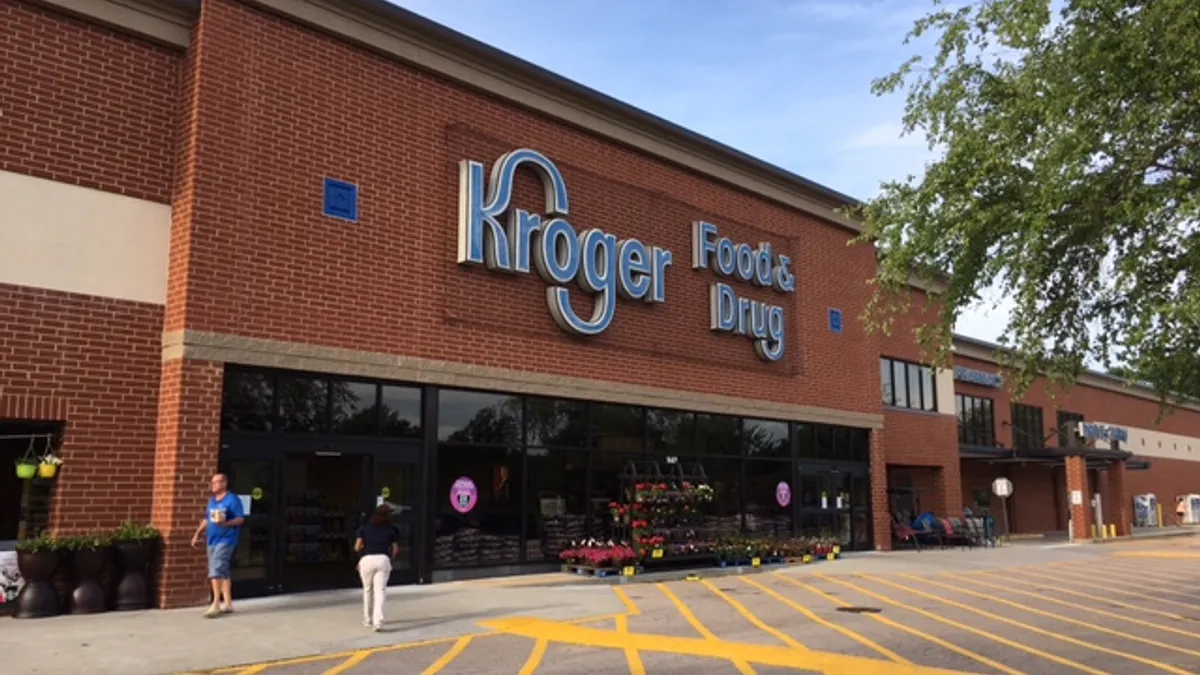Dive Brief:
- Kroger is in talks with Ace Hardware to add store-within-a-store locations, according to The Street.
- Ace Hardware has more than 5,000 stores globally, including 400 "express" locations. Started in 2012, these express formats average 5,000 square feet and appear in supermarkets and other retail locations. According to The Street, Ace offers operators $150,000 to open these locations.
- Kroger has lately been branching beyond its core grocery offerings. Last year, it opened its first restaurant, Kitchen 1883, and in November announced it would begin offering a private label fashion line later this year.
Dive Insight:
Kroger continues to look beyond its core grocery business for growth. After diving into meal kits, serving up its first restaurant and announcing last fall that it would start its own clothing line, the Cincinnati-based retailer may diversify further into hardware sales.
Should this partnership move to fruition, the Cincinnati-based grocer likely sees an opportunity to nab more customers. While Kroger isn't exactly a name synonymous with power drills and caulk guns, Ace is one of the top brands in the hardware business, and the world's largest retailer-owned hardware cooperative, according to the company. It sees annual revenue of more than $5 billion, and reported $1.34 billion in revenue in the third quarter of 2017, up 9.1% from the year-ago period.
Ace has made grocery partnerships a key focus in the past few years, and currently operates inside or adjacent to dozens of stores, mostly independents, across the U.S. The hardware giant has promoted its express locations as a way for supermarkets to compete with larger chain stores. This is somewhat ironic, since Kroger is the largest supermarket chain in the country — but also appropriate given its desire to fend off Walmart, Target, discounters and other challengers.
Indeed, having a hardware offering might further insulate Kroger from the challenge Walmart poses. The mega retailer has gone after Kroger with price drops, store remodels and private label development, among other initiatives, but has failed to dent the grocer’s financial outlook, which has improved of late.
Hardware could also further insulate Kroger against Amazon by offering a regular destination for shoppers. It would also be well differentiated: Whole Foods might have Amazon Echoes and Kindle Fires, but only at Kroger can consumers stock up on produce and buy new drill bits.
In a recent LinkedIn post, Brittain Ladd, a former Amazon supply chain expert and current consultant for Kroger, wrote that the latter company "should view general merchandise (all non-food items) as an opportunity to increase revenue." Kroger has certainly taken the idea of diversifying its business to heart, and codified it through its recently unveiled Restock program.
But will customers take that step with Kroger? Much will be revealed in this very important year for the country's largest grocer.








